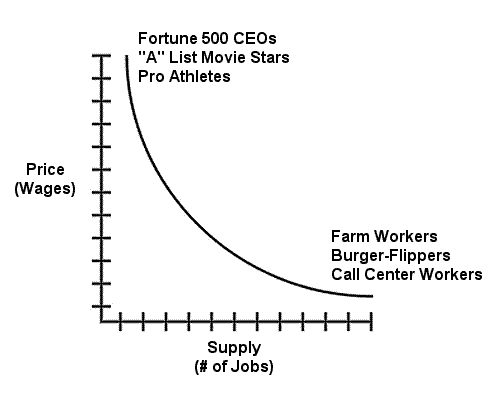I remember my dying grandmother stooped over her cane in agony while waiting hours for Montefiore Hospital, a prestigious private hospital in the Bronx, to find a bed for her - in 1964. And insurance wasn't an issue; they just didn't have the space. Surely everyone who has been delayed or denied approval for care from an insurance company knows the waiting time issue is a red herring. Maybe doctors would have more time for their patients if they didn't spend hours dealing with insurance companies.
Yeah, you can have any doctor you want, so long as he or she is in your insurance network. If the doctor is out of network, you pay through the nose. Some freedom!The government can't afford it:
Well, if we shifted our priorities away from bailing out banksters and waging wars, we could afford it easily. Why is it that we can throw trillions of dollars at bailouts and bombs but we can't afford health care for all?
Several years ago, I saw a newspaper photo of a black women in a Third World country; she was wrapped in a white sheet and sitting in a wheel barrow on the street. She had been put out of the hospital she had been in because she could no longer afford to pay for her care. In the United States, we would rightly consider such treatment barbaric, and then hypocritically hide our own barbarism in myriad bureaucratic maneuvers to deny a patient access to the hospital in the first place.
Secondly, we shouldn't react as if we don't already have socialized services in America. We have plenty of them: police and fire services, street lights, libraries and public schools to name a few. If they aren't working as well as they should, at least part of the blame can go to the anti-tax attitudes of the last thirty years, which have led to underfunding. So single-payer health care would not be the first time we had a public service available to all, funded by the taxpayer i.e. socialism.
Lastly, single payer wouldn't really be socialized medicine under a Medicare-for-all type of program. Only payment for services would be socialized. The actual rendering of health care would remain private. The practices and facilities that are private now would not become government-owned and run.
The Real Reason
The focus on all of these issues hides the real reason why single payer has been stymied. The real reason is that a "Medicare-for-all" system would put the private health insurers out of business. Corporatists and their bought politicians cannot allow the insurers to be run out of business because it would set a dangerous (to them) precedent of having a society decide that certain types of industries heretofore wearing the respectable label of "legitimate business" do not have an automatic right to exist.
If that happens, then what comes next? As food activist Michael Pollan, author of The Omnivore's Dilemma and In Defense of Food, points out, many of our health problems in America have their sources in food. For example, a triple-chocolate cake sent to me as a gift last December contained, according to its ingredient list, silicone and propylene glycol, the latter a substance also used as a solvent and as anti-freeze. Ingesting those kinds of substances cannot be healthy if one is not a car. Will a society that has the temerity to abolish health insurance companies then totally revolutionize its food system to run the purveyors of artificial and toxic "edible food-like substances," to use Pollan's term, out of business? (Monsanto, watch out!)
Once we break free of the notion that any particular industry is entitled to existence, will we then to finally repeal corporate personhood, stating what should be the obvious: that corporations are things that human beings have created to aid in performing certain functions. They are not our masters who have rights that can trump those of flesh and blood people. Single-payer health care could be the snowball that could start the avalanche that flattens and buries corporatism.
Imagine such a thing because I can assure you that the corporatists have. And the thought makes them sweat. It's is not simply a matter of lost near-term profits. It's a matter of control -- permanent control -- over our lives, money and choices.
(Note: You can view every article as one long page if you sign up as an Advocate Member, or higher).





